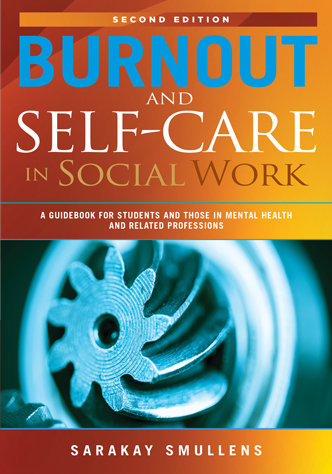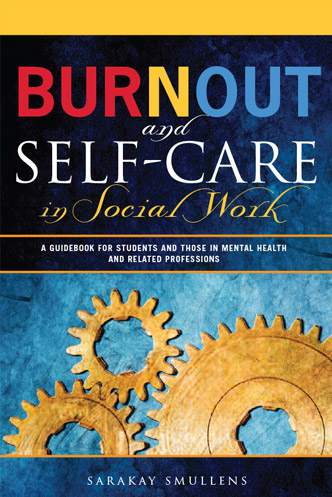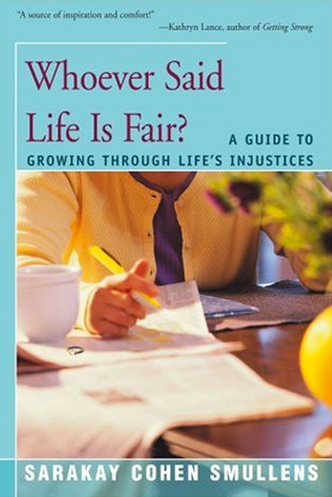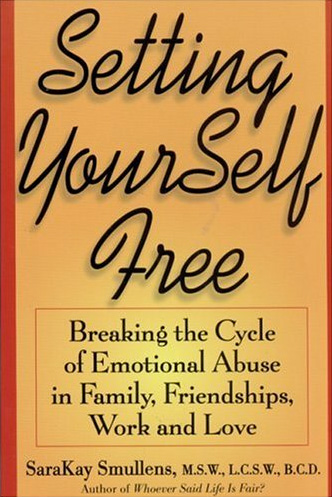Books

Burnout and Self-Care in Social Work: Second Edition
A Guidebook for Students and Those In the Mental Health and Related Profession
In the new edition, SaraKay introduces Societal Burnout as an essential component of burnout and illustrates its interaction with personal, professional, relational, and physical arenas of burnout. She also explores the impact of moral distress and dysfunctional leadership in families, work settings and society; addresses differences between depression and burnout from a psychosocial perspective; and shares vital information about our “inner-self” development. This innovative study can be beneficial to all seeking insight and balance in approaching their personal and professional responsibilities, as well as a reliable “emotional sense of direction” for themselves and their families.
SaraKay’s book is the first one noted in a list of ten as the best books for social workers in the United
States. It offers a full understanding of where burnout originates, what causes it, and its differences from depression. Because of this “Burnout, ed 2” is being bought by those not in the SocialWork or mental health professions and has grown into a best seller for NASW Press.
As the Social Work Degree Center says:
Students entering the field of social work or a social work degree, as well as practitioners who have been in the field for years, must understand how to prevent burnout, compassion fatigue, and secondary traumatic stress. These can become debilitating issues for people in the helping professions. Because very empathetic people go into the helping professions, they are especially susceptible to being overwhelmed by the problems their clients face, and the injustices they come across, in their daily work... Read full article, "The Best Books For Social Workers In The United States" here
Karen L. Chandler says:
Edition 2 of Burnout and Self-Care "updates the text’s content with enhanced exploration and and understanding,” introducing “societal burnout,” and “moral distress"…Her “message, both encouraging and cautionary” --- “If integrated into your life, self-care strategies, behaviors and insights will prevent, address, and alleviate burnout. Your body and what I think of as an Inner-Self voice that each of us has, but often ignores, as we push ourselves, will signal when burnout is a threat. Listen!" Read full review here
Sara S. Bachman, PhD, says:
The second edition is essential reading for all social workers, whose profession is committed to specific values such as service, dignity and worth of the person, integrity, and competence. SaraKay Smullens offers vital counsel to social workers and other service providers to counter exhaustion. I am honored to recommend this indispensable book, written by one of our graduates, an exceptional social worker who personifies the very best of the profession.
Aaron T. Beck, MD, says:
The first edition of Burnout and Self-Care in Social Work was an essential read for students in mental health and related fields. The text addressed an unmet need, offering research-backed explanations of the interaction of personal, professional, relational, and physical burnout, as well as effective self-care strategies leading to fulfillment. In her second edition, SaraKay Smullens expands this thesis. She underscores the cost of societal burnout in all arenas of life and the societal care necessary to restore hope and direction and protect citizenry and our fragile democracy.
Bonnie Strauss says:
SaraKay Smullens, a friend of long standing, is the wisest woman I know. Her second edition of Burnout is a brave, clarifying, and brilliant resource for anyone who has ever experienced life as an overwhelming encyclopedia with no index, and struggles with direction for how to balance enormous responsibilities successfully, with care and grace. As in the first edition, SaraKay offers an evidence-based text addressing how to protect yourself and heal when exhausted from giving too much, and leaving too little in reserve. In this new work she conceptualizes far more. Her case histories and journal entries that begin most chapters are what I see as “life poetry” underscoring finely turned, clearly written examinations and explanations. As a journalist and documentary filmmaker, I can attest that the truths offered in this work parallel what I have seen again and again through work and life. When loved safely and securely, the vulnerable among us can blossom. If unloved, the privileged can destroy us.
Lynn A. Marks says:
As an attorney whose career has been leading nonprofit organizations advocating for equal justice and opportunity for all, I met SaraKay Smullens through my support of the Sabbath of Domestic Peace initiative described in this edition. Her voice and clarity of direction were key then and remain so today. This highly readable, thoughtful, and timely book is a must-read not only for mental health professionals but also anyone who cares about making the world a better place. Of special interest is an emphasis on the importance of standing up for what is important to you as a self-care strategy, and an explanation of the often-overlooked “interactive flow” among our personal, professional, and political worlds. I found the author’s integration of experience, insights, and analysis to be compelling and uplifting, and, in this time of grave challenge, inspirational. Smullens doesn’t merely lay out problems. Her research offers strategies to acknowledge, understand, and address numbing overload—as individuals, as institutions, as society at large.
Ann Marie Marks, BSN, RN, MBA, CCM, says:
I first met SaraKay Smullens at a professional conference where I witnessed her extraordinary capacity for empathic attunement, astute clinical acumen and generosity of spirit. In her most recent book, Burnout and Self-Care in Social Work, Smullens successfully applies these talents in providing compassionate support to social workers and others engaged in related mental health professions.
Paul R. Pace says:
The author, whose private and pro bono clinical social work practice is in Philadelphia, has just published her second edition of Burnout and Self-Care in Social Work, available at NASW Press. This edition integrates an explanation of a fifth arena — “societal burnout” — which Smullens describes as the impact of long-simmering, unaddressed, dangerous societal issues in people’s lives.
Evidence-based, self-care approaches to alleviate and prevent burnout are described for each of the five arenas, as are the differences between burnout and depression.
Attention also is given to psychosocial developmental factors in the life of each child, as well as the impact of both moral distress and dysfunctional leadership in our personal, relational, professional and societal-political worlds.

Burnout and Self-Care in Social Work
A Guidebook for Students and Those in Mental Health and Related Professions
This resourceful guide offers clarification, direction, and opportunity for reflection to help students and professionals in social work, related fields, and beyond find balance in their personal and professional lives as well as ease work-related stress to better serve clients—and, in this way, achieve professional equilibrium, success, and personal fulfillment.
Carol S. Klein says:
Grounded by deep research and valuable insight, humanized by rich experience, this wise book is a must-read (and must-read-again) for caregivers as well as for anyone in or about to enter a profession or serve a philanthropy aimed at creating a better educated, more just and equitable society: doctors and nurses, first responders, mentors, professors and teachers, public defenders, social workers, therapists, and volunteers. Sarakay Smullens’ voice is never didactic, always collegial; the approaches and lessons to put to immediate use are innumerable. Each chapter is followed by engaging thought- and action-provoking questions. (I would tell you some lessons and questions that resonated with me, but it’s better to discover yours yourself.) I have already wrapped as holiday gifts two copies of Burnout and Self-Care—one for my son and daughter-in-law (speech therapists), one for my step-daughter (a family therapist). I’ll be back soon for more copies!
J. Cooperman says:
In clear and compassionate prose, veteran social worker and therapist SaraKay Smullens successfully defines "burn out," and just as importantly, offers practical steps for the self-care that will help readers reengage with their work and family lives. Written for social workers, this book is also a useful resource for anyone struggling to balance emotional well-being with the demands of helping others. Readers will benefit not only from Smullens' academic research, cited throughout the book, but also from her decades of experience as a social worker, therapist, mother, wife and grandmother.
Ellen Singer Coleman, LCSW, says:
I first met SaraKay Smullens at a professional conference where I witnessed her extraordinary capacity for empathic attunement, astute clinical acumen and generosity of spirit. In her most recent book, Burnout and Self-Care in Social Work, Smullens successfully applies these talents in providing compassionate support to social workers and others engaged in related mental health professions.
From the first page of this book, one appreciates this project as a labor of love. After 30+ years of passionately devoting herself to the practice of social work, she shares her extensive experience in the field to inspire, support and guide other mental health professionals whose daily work is to apply their aptitude for empathy and professional compassion to help heal their client's emotional suffering as well as problems-in-living. This task is not an easy one, the author explains, without the risk of becoming depleted, hardened or swallowed up.
In her book, Smullens speaks to her readers with compassion and a direct "say it as it is" style. She lays out the fact that the talents that bring social workers and therapists to this field also make them susceptible to the emotional contagion and over-involvement with their clients' pain. These are feelings, she says, that many understand all too well from their unresolved pasts. To avoid what the author refers to as "compassion fatigue," and burnout, she stresses the importance of examining one's own life, reflecting on how one thinks about and approaches the work, and maintaining "effective emotional boundaries." She calls these "gifts to the self," and which help the social worker or clinician "stay with" their clients empathically, without "taking on" their problems and personal suffering. Doing so, she believes will lessen the potential for countertransference pitfalls and vicarious traumatic stress.
Toward this end, Smullens offers readers a framework to reflect on personal experiences in the workplace, replete with emotional tools and concrete strategies to be used as a springboard for each to find their own unique ways to replenish and maintain personal well-being. These needs for self-care within the professional, personal, social and physical arenas are explored in depth.
In the conclusion of Smullens' heartfelt book, she states "People will disappoint you. Life will hurt you. But if you have something that is completely yours to invest in, something you are passionate about, you can rise above pain and find personal joy and loving connection. For me, that something is social work."These words, and the wisdom one will discover in SaraKay Smullens' exceptional "must read" book will stimulate the minds and hearts of all mental health providers, whether new to the field, or seasoned practitioners. It will not only inspire, but also promises to enrich the reader's career and personal life so as to allow it to thrive and prosper.
A review from the The Social Work Degree Center
A review from the Journal for Family Life Education
A review from Pennsylvania Physician
A review from The Philadelphia Lawyer
A review from The New Social Worker
A review from NASW 2016 Mental Health Section Newsletter
A review from the CFLE newsletter, Spring, 2017, published by the National Council of Family Relations

Whoever Said Life Is Fair?
A Guide to Growing Through Life's Injustices
Anyone who has experienced loss, betrayal, or injustice will find comfort and hope in this wise, moving book. Sharing her professional insights as a family therapist as well as personal lessons learned the hard way, the author shows us how to accept the fact that life isn't fair, regardless of what we may have been taught. Whoever Said Life is Fair? shows us how to rise above tragedy and pain, reach out to the world, and find joy.

Setting Yourself Free
Breaking the Cycle of Emotional Abuse in Family, Friendships, Work and Love
Emotional abuse, like a bad gene, passes from generation to generation in a vicious cycle. It creates sad, angry, and fragile children who grow into adults who perpetuate the cycle in ways which are harmful and destructive to themselves and those who depend on them. But the cycle can be stopped: Setting Yourself Free enables readers to confront painful emotional injuries and break free of the emotional-abuse trap.